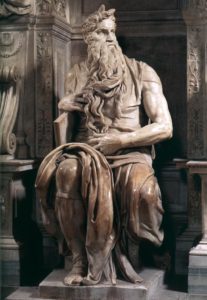“Humbly welcome the word that has been planted in you and is able to save your souls.”
 One of the amazing gifts that we have been given as human beings is the ability to learn, the ability to receive information. We can get this from many different sources. One of the most crucial of the human tasks that we face is growing in our ability to discern what is appropriate to accept as true and to discern what is false, erroneous, or otherwise harmful. Unfortunately, we are constantly barraged with both.
One of the amazing gifts that we have been given as human beings is the ability to learn, the ability to receive information. We can get this from many different sources. One of the most crucial of the human tasks that we face is growing in our ability to discern what is appropriate to accept as true and to discern what is false, erroneous, or otherwise harmful. Unfortunately, we are constantly barraged with both.
On the one hand, we have the option of “welcoming the word…that is able to save” our souls. On the other hand, the world, the flesh, and the devil are all clamoring for our attention as well, with the lead being taken by the father of lies–the same one who brought about our fall by deceiving our first parents. That, coupled with the fact that we are fallen and living in a fallen world, can result in significant challenges as we try to discern what is true. Who do we trust, and why? How do we recognize our own tendencies toward confirmation bias or other blind spots in our discernment process? Where do we start?
The first reading shows the logical place to begin. The Holy One of Israel was not shy in giving His People His Word that they may grow in their understanding of the way of life He is calling them to live and “may enter in and take possession of the land which the LORD” was giving to them. From the very beginning, the Holy One of Israel made available His Word to His People, using a variety of instruments: Moses, judges, prophets, etc. The Word comes with a warning: “you shall not add to what I command you nor subtract from it.” Here are displayed two of the essential components: the Word itself and the instruments that not only present the Word but that also are given a capacity to interpret it for the sake of the People.
This is a task we first see exercised by Moses himself. Then, as the history as well as the Jewish tradition maintains, this gift of possessing a teaching capacity to authoritatively present the truth to the People is passed on to his successors. This is what the Lord Jesus is referring to when He speaks of the “Seat of Moses.” This involves both the Word revealed as well as the authority to interpret it for the sake of the People.
As Catholics, we understand that at Pentecost, when the Church was born, the Seat of Peter was empowered to now hold that authoritative teaching capacity for the Church, what we refer to as the Magisterium: the pope and the bishops in communion with him. This three-fold combination is meant to be the greatest source of instruction for us: the Sacred Tradition, the Sacred Scriptures, and the Magisterium. As the Dogmatic Constitution on Divine Revelation, Dei Verbum, teaches, “Christ the Lord in whom the full revelation of the supreme God is brought to completion…commissioned the Apostles to preach to all men that Gospel which is the source of all saving truth and moral teaching, and to impart to them heavenly gifts.” (DV, #7). Their successors continue the work: “It devolves on sacred bishops ‘who have the apostolic teaching’ to give the faithful entrusted to them suitable instruction in the right use of the divine books, especially the New Testament and above all the Gospels.” (DV, #25).
As we face the daunting task of “humbly welcoming the Word,” the Church has given us clear guidance and urged us to study the Scriptures and those instruments of instruction made available to us, especially the Catechism. If we receive into our hearts and minds this Word with its capacity to save us, then we will have a solid criterion that we can use to judge the truth of all those voices clamoring for our attention. Since it is totally unlikely that that barrage of “information” will lessen, it is particularly crucial that we immerse ourselves in the truth that we know we can trust. He Who is the Word made flesh will guide us as we seek Him. – Fr. Ed Fride
Read More from Fr. Ed Fride
Third Sunday of Easter, 2022
“I will praise You, Lord, for You have rescued me.” The great Octave of Easter concluded with Divine Mercy Sunday, one of Pope St. John Paul the Great’s many gifts to the Church. During these last few weeks we have been graphically reminded of the gifts to us of the Eucharistic Lord, of the ... Read more

